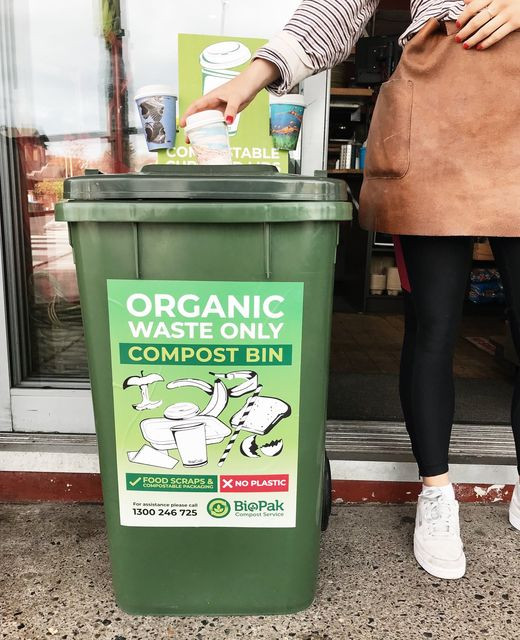
Together, We Can Keep Organics out of Landfill
22nd Apr 2020
Right now, we are in a climate emergency, we have overloaded landfills, and our recycling industry is in crisis. But our consumption habits are not slowing. In Australia, every year we send over 8 million tonnes of organic waste to landfill every year, including 1.5 million tonnes of food waste. This equates to about 300kg of organics per person. However, industrial composting is an opportunity to prevent food waste and plant-based packaging ending up in landfills, where it releases methane – a greenhouse gas up to 80 times more potent than CO2.

Compostable Packaging is Part of the Solution
By composting, we can give back to the earth and prevent harmful emissions from landfill. Composting is nature's recycling program for organic materials. BioPak's Compost Service in Australia has already reduced the amount of organic waste going to landfill by 660,000kg. Other waste management companies, such as Goterra in Canberra, have joined the initiative. Plant-based packaging must be certified compostable. Independent third party certification is crucial, as it validates environmental claims and provides assurance to composters, business owners, and consumers that, if correctly disposed of, BioPak products can decompose in a commercial composting facility within the required timeframes and will not contaminate the compost stream with toxic materials. BioPak plant-based compostable foodservice packaging is certified to Australian and European compost standards, which ensures they will close the loop and contribute to a circular economy.
You Can Help
Together, we can improve composting in Australia and work towards a circular economy. We encourage governments, local councils, waste management companies, recyclers, brand owners, business owners, and consumers to work together to reduce waste to landfill. Our organic recycling program, the BioPak Compost Service, allows industrial composting facilities to process organic waste, food scraps, and compostable packaging, transforming these into nutrient-rich soil over a period of eight weeks.
Information taken from BioPak's website. Read about the difference between compostable, biodegradable, and degradable and what it means to be carbon neutral, on our blog.
Planet Friendly Packaging acknowledges the traditional custodians of the land on which we work. Our thoughts go out to everyone affected by COVID-19. Stay safe.

